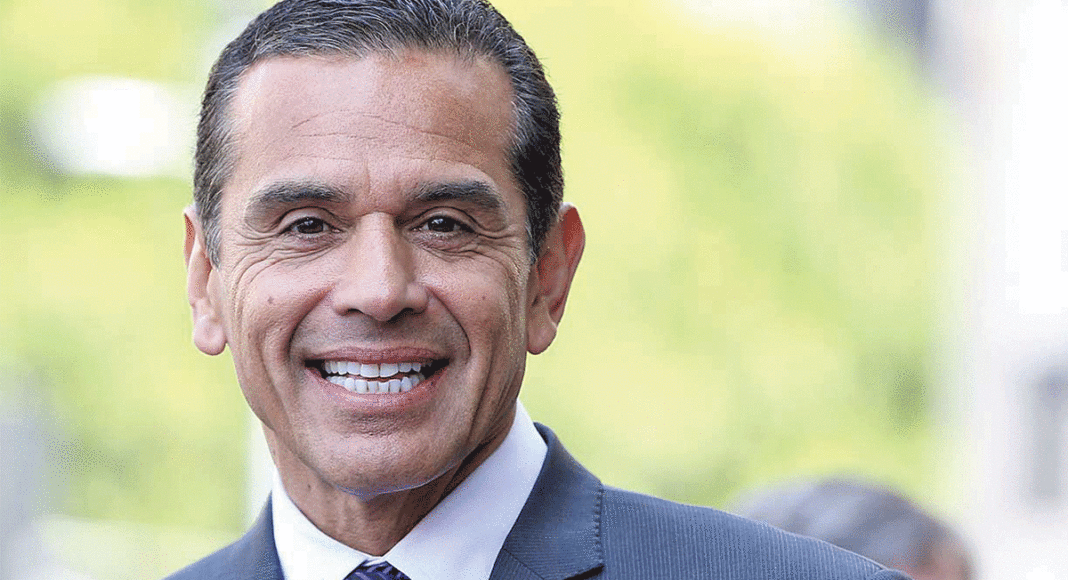[dropcap]A[/dropcap]ntonio Villaraigosa has a sharp memory.
When the gubernatorial candidate called me up last week, he detailed to me what he liked about a blog post I’d written about him four months earlier—as well as what he didn’t. He opined that I hadn’t provided the full context for one of his quotes, which was probably a fair point. And he remembered the exact part of the quote I had left out.
In a field with six major candidates for governor, Villaraigosa, who once served as the state assembly speaker, is locked in a dead heat with Lt. Gov. Gavin Newsom, according to the most recent polls. Villaraigosa spoke to GT about immigration, healthcare and balancing budgets.
If you were governor right now, how would you respond to Attorney General Jeff Sessions’ lawsuit against California over its immigration policies?
ANTONIO VILLARAIGOSA: I’d do what Gov. Brown did. I’d say that you’re not welcome in our state when you misrepresent what we’ve done in California. There’s nothing in the California Values Act that says if people commit violent crimes, they won’t go to jail. They will go to jail. They are going to jail.
The biggest reason [Sessions] came to California is for almost a year now he has been under almost a weekly assault from Donald Trump, criticizing how he’s carried out his duties as an attorney general. He’s struggling, fighting to keep his job, so he came here to California to curry favor with his boss.
You’ve advocated for creating a public option for healthcare. How is that better than trying to build a single-payer system from scratch?
First of all, I supported universal healthcare my entire life. SB 562 is legislation that essentially articulates the goals of a state-paid-for healthcare system that would end Medicare and Medical as we know it; eliminate all insurance-based healthcare plans, including Kaiser; require a federal waiver from Donald Trump, who wants to eviscerate the Affordable Care Act (ACA) and Medicaid; and cost at least $200 million, assuming you could suspend Prop 98. And you’d have to suspend it each year, and you’d have to pay back to community colleges the money that would have gone to them. So it’s really a $400 million price tag. So I’ve asked Gavin Newsom, who’s tripled down on SB 562, to debate me on this issue.
The number one issue for the next government is to protect the ACA. In California, we need to do the following: One, restore the individual mandate at a state level. Two, we need to focus on prevention to a much greater degree. Three, we need to look at best practices here and around the country—Cleveland Clinic, Kaiser—where we can adopt cost-containment measures, to drive down the spiraling cost of healthcare. It’s not just a public option. It’s a public option, along with the exchange, along with what we currently have right now.
You paid fines in 2011 for ethics violations for accepting free tickets to high-profile events during your time as mayor. How can you convince voters that you have the ethical standards to be governor?
Before I was mayor, everybody on the powerful commissions—the airport commission, the port commission, the planning commission, community redevelopment—mayors used to put people in those positions that raised money for them. I signed an executive directive my first day in office prohibiting my appointees on any commission, including those powerful ones, from being able to raise money or contribute to the mayor.
What I was fined over was an issue that, prior to me, no one had ever been fined for, and I’ll tell you why. In my case, if I went to a game, a concert, and they gave me tickets, I would have to report them, and I always did. I was speaking at all these events. At every one of these events, I was speaking. Only once in a great while did I actually stay at those events.
The city of Santa Cruz is facing a budget shortfall and has announced a quarter-cent sales tax to support its general fund. One growing cost is its pensions. How did you cut pension costs as mayor?
We were facing a recession that was the worst since the 1930s. Many people said we were on the verge of bankruptcy. I said, “Not on my watch.” I was going to have to lay off thousands of employees. I worked with our unions. They wanted me instead to do an early retirement. We didn’t have the money for it, so we worked together and got current employees up from six percent to 11 percent. We did it working with our unions. We almost doubled the size of their pension contributions, but I did it working with them.













